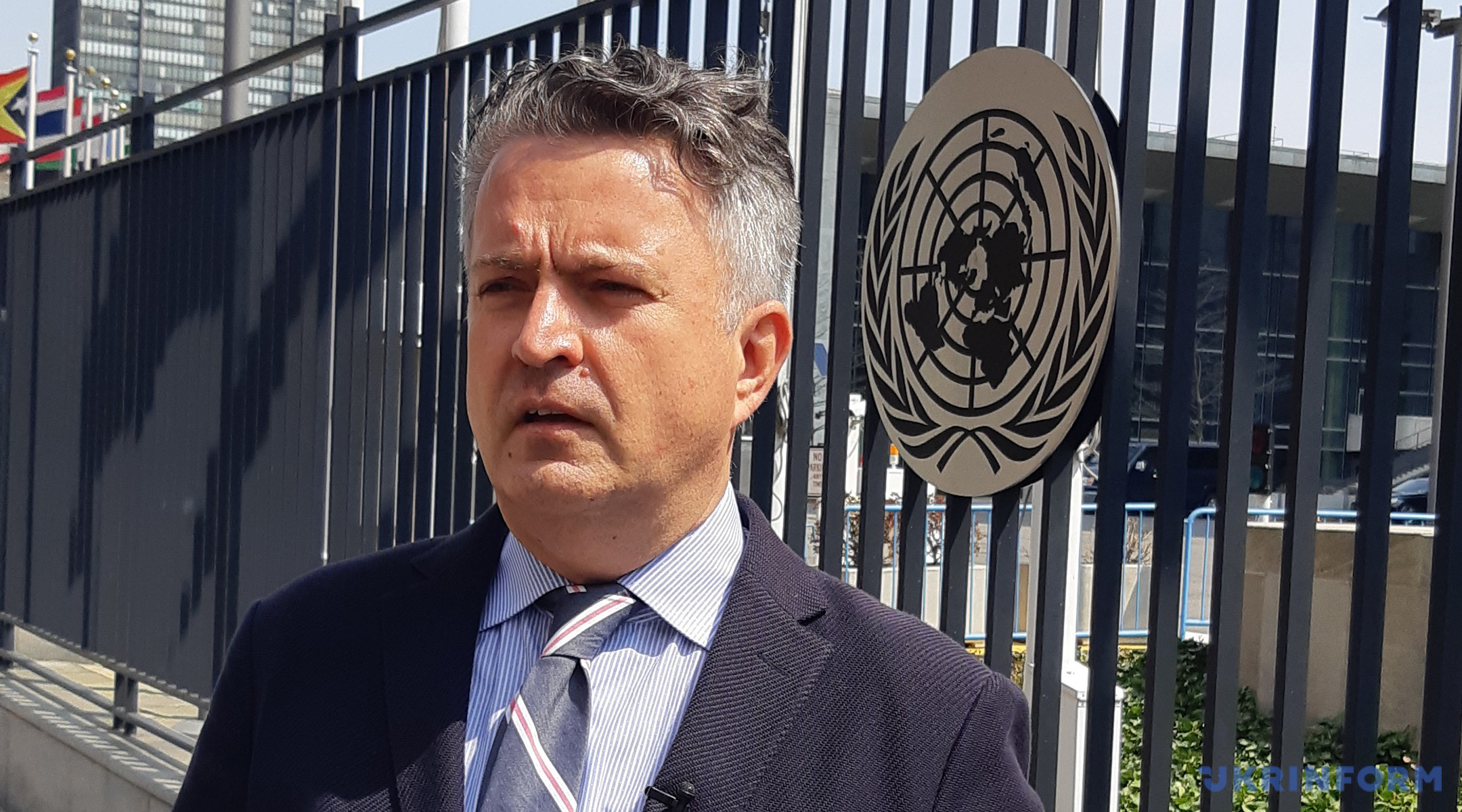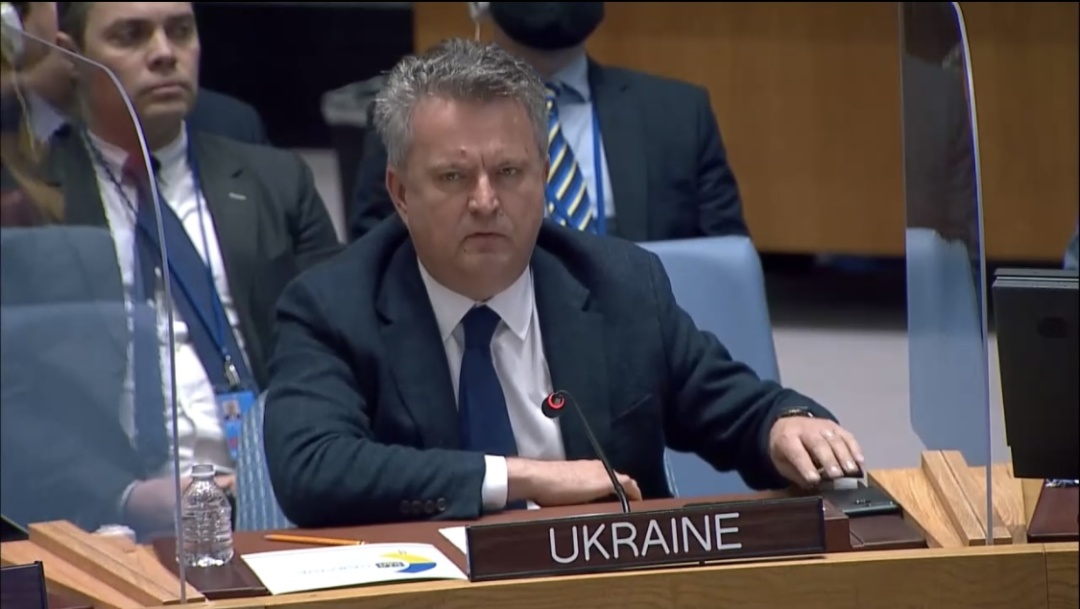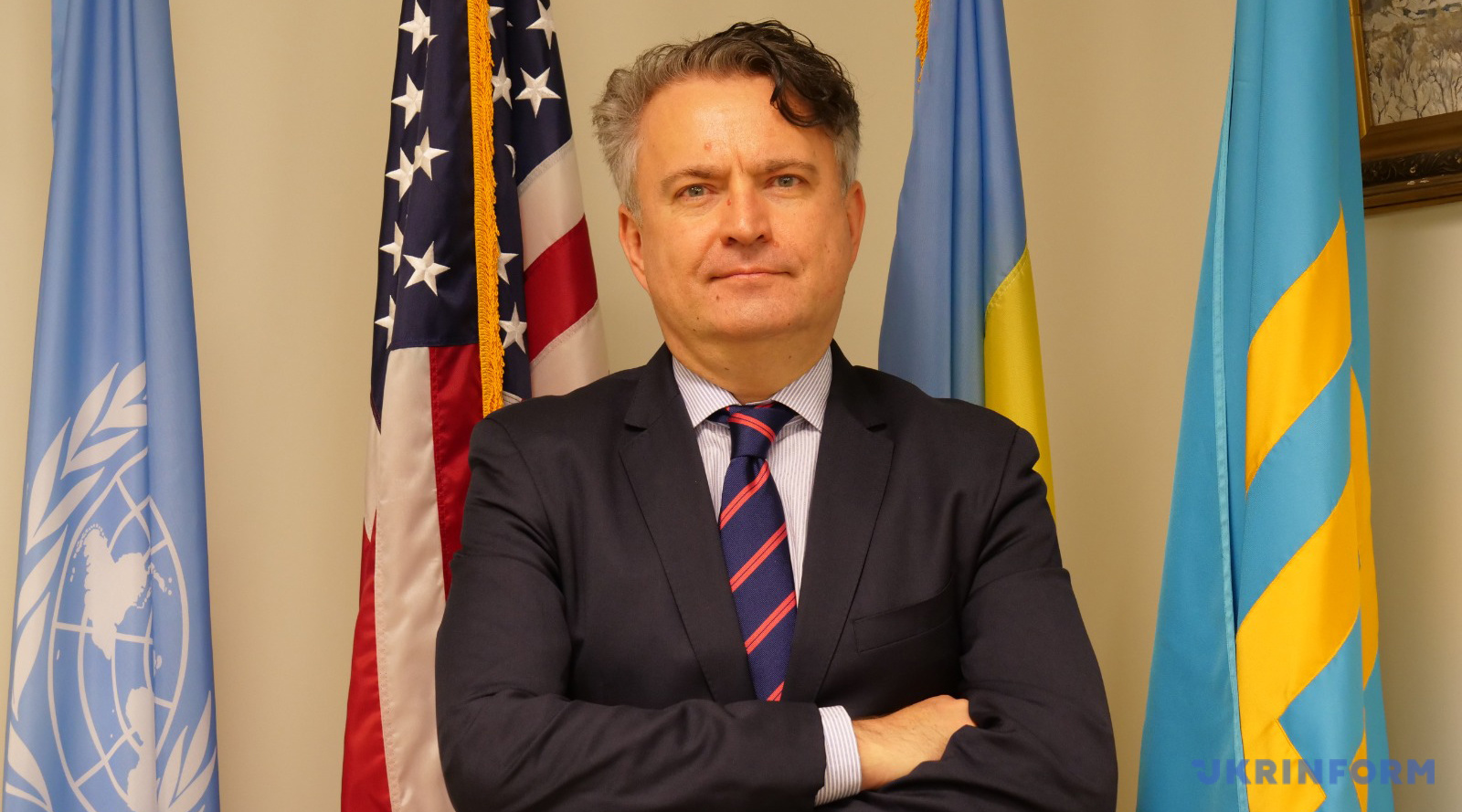The deployment of UN humanitarian missions under constant threats of shelling by the Russian Federation, which sits in the permanent member's chair at the Security Council in place of the former Soviet Union, is absurd, Ukraine's Permanent Representative believes. We sat down with Mr. Kyslytsya to discuss the United Nations' response to the Kakhovka HPP dam blast and the Russian war in general, as well as to learn where the international organization gets money for assistance and whether the amount is sufficient...

- As you know, the United Nations is a non-profit, non-commercial organization, but it has huge funds. Where does the money come from for humanitarian response - to eliminate the consequences of disasters affecting a large number of people and to support the victims?
- In general, the UN is financed by regular contributions from member states, which form the Organization's budget, and donor funds. The costs of humanitarian aid do not come from the budget and depend only on the willingness of donors to provide them.
- And who is the main, so to speak, "funder" of the UN, i.e. contributor, and who makes the largest donor payments for the humanitarian response implemented by the UN?
- If we talk about the regular budget, the main contributor is the United States, which pays 22 percent of the total UN budget. The amount of contributions is calculated depending on the economic power of the country - gross domestic product, solvency, and other indicators. I would like to say that the contribution of the largest country in terms of both territory and the number of problems created in the world does not reach even 2 percent.
- Obviously, you mean Russia...
- As for the main donor of humanitarian programs, it is also the United States. The only difference is that the United States allocates even more money to them - almost 40 percent of all donor money, or $5.4 billion. The top 10 global humanitarian donors also include the European Commission (11.4 %), Japan (9.7 %), Germany (8.4 %), Sweden (5 %), the Netherlands (3.3 %), Canada (3 %), Norway (2.1 %), the United Kingdom (1.7 %), and France (1.3 %).
Funds for the UN humanitarian response are allocated not only by states, but also by non-governmental organizations, commercial entities, and private companies.

- And to what extent do these funds meet the needs of the world?
- Last year, the UN Global Humanitarian Response Plan was funded by 57.5 %, which amounted to almost $30 billion. And it was a record amount.
Unfortunately, this year's situation is worse... As of mid-June, donors have provided only 18.4 % of the annual UN global humanitarian response needs, i.e. less than a fifth of the total for six months.
At the same time, the UN estimates that in 2023, the number of people in need of humanitarian assistance in the world will increase by 65 million against last year, reaching a total of 339 million.
The acute need for humanitarian assistance has increased not only due to conflicts but also due to severe natural disasters.
- According to the available data, the floods in Pakistan killed or injured 15,000 people, forced another 8 million to seek shelter, destroyed or damaged more than 2 million homes, and affected 4 million acres of farmland. The earthquake in Turkey and Syria killed almost 47,000 people and left 19 million homeless. What was the UN's assistance to these countries and how did it affect support for Ukraine?
- Yes, these are terrible natural disasters in their destructive consequences... To overcome the consequences of the floods in Pakistan, the UN provided humanitarian aid totaling $360 million (this year and last year). A $1 billion collection was announced for Turkey, and $420 million was raised.
At the same time, as our country is suffering from unprecedented acts of state terrorism by the Russian Federation, Ukraine has been and remains a priority for the UN humanitarian response. Last year, we received about $4 billion in aid.
The UN's humanitarian response in Ukraine is also a constant focus of the Ministry of Foreign Affairs. On June 8, during a meeting with UN Resident Coordinator in Ukraine Denise Brown, Foreign Minister Dmytro Kuleba agreed to redouble efforts to overcome the humanitarian consequences of Russia's terrorist attack on the Kakhovka hydroelectric power station.
And the UN is fulfilling this promise: as of June 14, 115,000 food packages, 900,000 liters of drinking water, and 5,400 people have already been distributed in the disaster-affected areas. In addition, water purification tablets, solar lamps, hygiene kits, medicines for medical institutions, etc. have been delivered.
At the same time, as Minister Kuleba noted regarding the UN response, "the problem is not the lack of desire to do something, but the procedures that slow down the process. But we are actively working to streamline the relevant decisions and actions.
In particular, in New York, we are constantly communicating with both key donor partners and the heads of the UN Secretariat to improve the effectiveness of the humanitarian response. I recently held separate meetings with the Under-Secretaries-General for Political Affairs, Humanitarian Response and Development Programs.
I would like to remind you that at the outset of the full-scale invasion in March-April last year, the UN was unprepared to respond quickly, as it was the first time in its history that it had faced a war of this nature and scale in Europe. However, it quickly adapted its activities in coordination with the Ukrainian government and established a humanitarian response. Today in Ukraine, UN agencies are conducting their largest humanitarian operation in the world.

- The United Nations is often criticized for its lack of assistance to Ukrainians in the temporarily occupied territories, in particular those affected by Russia's blowing up of the Kakhovka dam...
- The UN has never kept silent about the fact that Russia does not allow humanitarian missions to the temporarily occupied territories, despite numerous requests. This was the case during the blockade of Mariupol, the seizure of districts of Kharkiv and Chernihiv regions, and the occupation of parts of Donetsk and Luhansk regions since 2014.
Humanitarian personnel do not have weapons, so they need security guarantees from the occupiers. Russia does not provide such guarantees and ignores all requests.
So, we should clearly understand that the root of the evil in this situation is Russia. And this root must be extracted. After all, it is absurd that the UN deploys its humanitarian missions under the threat of shelling by the Russian Federation, which sits in the chair of a permanent member of the UN Security Council.
Volodymyr Ilchenko, New York
